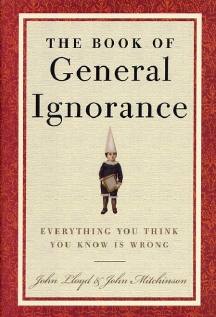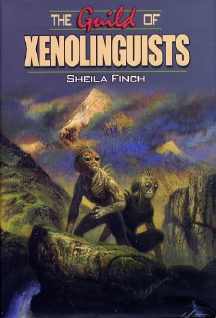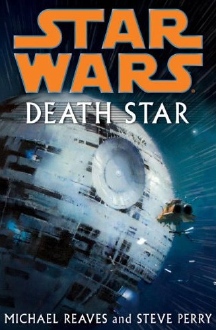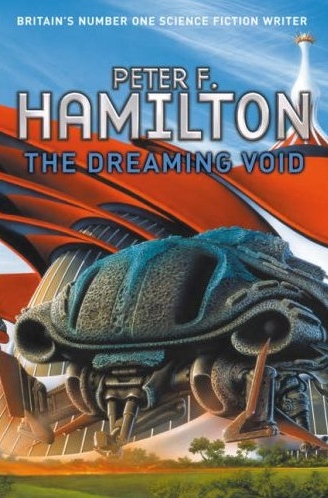|
|
|
|
This Just In...News
From The Agony Column
|
| |
|
08-11-07: Preview for Podcast of Monday, August 13, 2007 : Not enough future to go around.
Here's an MP3
preview of the Monday August 13, 2007 podcast for The Agony
Column. Enjoy!
|
| |
|
08-10-07: Sheila Finch Joins 'The Guild of Xenolinguists'
|
Talking to the Aliens
|
|
Bob
Eggleton always provides fantastic cover art for tales of
the fantastic.
|
What more could the
science fiction reader, those of us who deliberately seek out science
fiction of the written variety, desire than 'The Guild of Xenolinguists'
(Golden Gryphon ; September 2007 ; $24.95) by Sheila Finch?
If there is a Holy Grail of science fiction language, then this must
by definition be that golden cup of knowledge.
Of course, we know to expect the best from Golden Gryphon, especially when
it comes to short story collections. With recent releases like Mary
Rickert's 'Map of Dreams', Golden Gryphon has been keeping up the
quality of the short story collections for which they are deservedly so well-known.
But language is so key to science fiction and yet so often absent as its
subject. That's why Finch' collection is such a literary delight. Words,
front and center form the crux of the stories herein.
After an entertaining and erudite introduction by Ian Watson, the collection
unsurprisingly begins with "First Was the Word", one of the few
first contact stories to address the language issue. Jamal is a man called
to help with a little translation problem; his first sight informs him that
he's not dealing with an ordinary human. His first touch tells his that he's
not dealing a human at all; until he return to the tender mercies of his
minders, who tell him he'll be branded as "just another blog nutcase" if
he tries to write up his experiences. The internet – always useful!
The stories progress through all levels and consider a variety of aspects
of human and alien communication and interaction, and once you unlock this
conceptual floodgate, you'll find stories that focus more starkly on human
language than most high-falutin' literary enterprises this side of The
International Journal of Applied Linguistics. The problems we face are
more daunting and more story-worthy than you’d ever imagine. How do
we communicate with a race when it may or may not be sentient? How do we
tell? What happens when you inadvertently become involved in local politics?
Every word counts in a collection about communicating with the aliens.
Just to top off the collection, Finch contributes fascinating article titled: "Berlitz
in Outer Space: How Alien Communication Just Might Work". This is probably
the only afterword you're going to find in a collection of science fiction
stories that cites Benjamin Whorf, Marvin Minsky and Noam Chomsky. Finch
lays bare much of the logic she has used to create her fictional universe
from words about those who must learn new words. As much as her stories are
written in the classic science fiction tradition, they are quite clearly
literary stories in the most analytic sense of the word. Of course, The
International Journal of Applied Linguistics has not yet published an
article on dealing with large tyrant moles. And if they could or did, they'd
be dismissed as "just another blog nutcase", a phrase that will
likely require translation into an alien (or human!) language sooner rather
than later.
|
| |
|
08-09-07: John Lloyd and Jim Mitchinson 'The Book of General Ignorance'
|
'Everything
You Think You Know Is Wrong'
 |
|
| Dunce
cap chic is coming back! Cool! |
OK, Firesign Theater
fans, line up. Here's the non-fiction book that proves our boys were
right, way back when.
Dogs flew spaceships.
Everything You Know Is Wrong.
Actually, the answer to the unasked question here is, the fruit fly, and
the unasked question is "What was the first animal in space?" (p.
163) No it wasn't Laika the space dog, the namesake for a thousand rock bands
or songs.
Fruit flies, and that makes sense when you come to think of it. If you're
looking for a book that is chock full of non-trivial trivia, then you’re
looking for 'The Book of General Ignorance: Everything You Think You Know
Is Wrong' (Harmony Books / Crown Books / Random House ; August 7, 2007 ;
$19.95) by John Lloyd and John Mitchinson. Lloyd produced
Blackadder for the BBC; Mitchinson drinks with him and writes for QI, whaever
that is. Blackadder and drinking are good enough for me. I'm there and generally
ignorant.
The thing is, this whole ignorance thing spins off from the work of a couple
of my very favorite writers. Lovecraft started the black, hopeless marble
rolling through the cosmos with the famous opening quote from "The Call
of Cthulhu":
"The most merciful thing in the world, I think, is the inability
of the human mind to correlate all its contents. We live on a placid
island of ignorance in the midst of black seas of infinity, and it
was not meant that we should voyage far. The sciences, each straining
in its own direction, have hitherto harmed us little; but some day
the piecing together of dissociated knowledge will open up such terrifying
vistas of reality, and of our frightful position therein, that we
shall either go mad from the revelation or flee from the light into
the peace and safety of a new dark age."
Sure, we do seem to be pretty far into a new dark age, so far as fleeing
goes. But Lovecraft's point, that what we do no know greatly exceeds what
we do know has always stuck with me. And it was probably that which reverberated
with the same ideas when I came up against them repeatedly in the work of
Stanislaw Lem. Obviously, we do like to focus on what we know. There's comfort
to be found in collecting stuff, as any obsessive book reader and collector
will tell you. But it's wise to keep an eye on what we don’t know.
Might keep you out of trouble before you go charging off to do good or ill.
Stephen Fry contributes a nice Forward about the power of "dumbing up".
But it's John Lloyd who really caught my attention with the phrase:
"This book is for people who know they don’t know very much."
Guilty. Of course, this is also the claim of the Forteans, that there is
much we don’t know. This is not to say that flying saucers
are piloted by little green men, but rather, that when people report seeing
things in the sky, there must be a reason. Maybe there is something
in the sky or maybe there is something in our brains besides uninformed opinions.
Whatever the case, you'll be much better informed about a variety
of subjects once you've got your hands on 'The Book of General Ignorance'
which offers not just answers, but more importantly: questions.
Questions like, how many sense are there (nine), and who was the most dangerous
American in history (Thomas Midgely, who invented CFC's and lead in gasoline).
'The Book of General Ignorance' is the coffee table book for readers, since
there is not a picture to be found. The Q&A's come at a clip of about
one every two pages; they're witty and consistently interesting. You'll want
to beware over-quoting the book to those around you. In fact, you might just
want to bring your copy to work or buy one for the office break room. It'll
get quickly read, -re-read and soon all your co-workers will be shooting
down the world of misinformation that surrounds all of us. It might get a
bit tiresome, but this is fun and smart tiresome.
But then, learning that alcohol doesn't kill brain cells is worth it. (It
just makes them grow back more slowly.) Worth it enough to take the book
with you to the pub. Once again beware; one of the things you are least likely
to know is how your constant correction of general ignorance is going to
go down amidst fellow drinkers.
|
| |
|
08-08-07: Michael
Reeves and Steve Perry Chronicle '*Wars: Death Star'
|
History of Big
Ol' Boomstick
|
|
Gotta
admit that's a classic SF illo.
|
Yes, the end is
nigh. I have studiously avoided ever writing about *Wars books for
this site for some 5-plus friggin' years. The purveyors of said product
line have been cranking out books and selling books like crazy. They're
fine stories for boys, though in point of fact they exist only to move
more profitable lines like toys and computer games. They also help
keep a lot of books actually worth reading on the shelves, I suppose.
Take the *Wars merchandise out of the bookstore and you'd be surprised
how empty it looks. Scary, that is. But these folks clearly don’t
need me to tell people about their books. You have to make a vigorous
effort to avoid them.
But I'll confess a certain small amount of interest in the latest book-cum-advert
to come in over the transom, 'Star Wars: Death Star' (Del Rey / Ballantine
Books / Random House ; October 16, 2007 ; $25.95) by Michael Reeves
and Steve Perry. As bored shitless as most of these titles leave
me, this one actually sounds pretty interesting. And it manages that because,
interestingly enough, it does not focus on the characters. Nope,
nosiree, the star of 'Death Star' is appropriately enough, the Death Star.
This Star Wars novel chronicles the Construction, the Shakedown and the Final
Battle of a big ol' boomstick. And that sounds kind of peachy to me.
From the get-go our perspective is tweaked. The folks we know as good guys,
the Rebels, are making their escape from the construction zone for the Death
Star, with the story being told from the viewpoint of the fighter pilots
trying to keep the escapees from getting away. These aren't the automatons
that we see later or earlier in the series. These are grumpy guys who sleep
in their spacesuits, the better to be ready when rebels escape. So no, you're
not getting any bit of literary-meta-fiction. You're getting a *Wars adventure
story with a more interesting story arc than usual. In this story, we know
the protagonist (the Death Star) dies, and that segment of the novel is the
least compelling. All that running about. No what interests me most is the
bit about the Shakedown. Now that gets my attention.
That's because, well, I've put a few bits of technology through a Shakedown.
It's a part of the tech development process that doesn't get a lot of attention
in the literature, because it is such a middle. It's not inherently story-friendly.
But I can envision that the shakedown for the Death Star might be pretty
spectacular, and it would still be in fact the just-testing part of the process.
Part of the reason this book appeals to me is that the characters, about
whom I've heard far too much, have been relegated more to the background.
Yes, you'll see all your favorites, but they’re cameos and the real
star of the show is a big chunk of hardware, which has, come to think of
it, always been the case in *Wars series. In 'Death Star', they just finally
get round to admitting it.
Let me mention that Michael Reaves and Steve Perry are names that have been
around. I do believe that I have a story or two by Mr. Reaves in my old 'Horrorstory'
collections, from Underwood & Miller, stories that I enjoyed. Moreover,
I do believe that he was responsible for some of the better episodes of Teenage
Mutant Ninja Turtles back when that was a cartoon series that I used
to watch with my little boys. They're both in college now. Perry is a veteran
who has done, if I'm not mistaken again, several Alien novels (and
I'll cop to having read some of them) as well as scores of other stuff. The
two working together ensure that at least everything will make a fair amount
of sense,
and if that happens, I'm pretty sure that this will be a fun book.
You may or may not ever wish to allow a *Wars book into your environs. This
series has the sort of market penetration that generally puts me off. One
has no real need of reading such material in general, because even if you
try to avoid it, you can't help but be deluged by the sheer number of published
*Wars ancillary marketing materials. Still, perhaps this book is the exception.
It seems that it might, at the very least, warrant a shakedown to see what's
what.
|
| |
|
08-07-07: A Review of Peter F. Hamilton's 'The Dreaming Void'
|
Limited Editions and Unlimited Space
|
|
All
hail Jim Burns. Always apleasure to enjoy his work. |
Today, the official day of its UK release, I'm posting my full-length,
in-depth review of Peter F. Hamilton's 'The Dreaming
Void'. In brief; I liked it a lot. It's shorter than you might expect,
and while the focus
at first seems to drift a bit, it all crisps down in the end. Hamilton's
fans will not be disappointed; other readers who pick up this series
stone cold will quite likely be delighted enough to go back and check
out his other work in this mode, the gi-normous Night's Dawn trilogy
or the equally large prequel series set in the same universe, 'Pandora's
Star' and 'Judas Unchained'.
You
can read the review here, though I'd guess a fair number of you
have the book on pre-order. And you'll want that first-edition hard
to read,
and surprisingly, you'll be able to read it. Hamilton's books have
a way of accruing value, so you might think you have to buy two just
to catch
up and read one while shelving the other. The HC's of the Night's
Dawn trilogy got pretty pricey pretty fast. (Like $450
a pop pricey!)
So I'm happy to report that Macmillan wrote to inform me that they're
selling directly, from their website, a signed, slip-cased limited
edition for
the bargain price of £25. I just this second checked the order process
and they'll hit you up £2 to send the behemoth to the United
States, so for what, some $60 plus? -- you can get a signed, limited
edition Peter
F. Hamilton novel delivered to your door. Such a deal!
It doesn't hurt that it's a great book, with Hamilton in top form,
and working in a smaller-size volume than we're accustomed to. Space
telepathy,
alien artifacts and planet-based chase scenes as rousing as Hamilton's
trademarked planetary extractions. Forget the signed hoobely-woobely
– the real deal here is space opera, playing on the big screen in your
skull.
This is what reading is all about!
|
| |
|
08-06-07: A 2007 Interview of Jean Thompson by Kathryn Petruccelli
|
"She was not at all religious but she did believe in guilt."
Sometimes all you have to do is to pick up the book.
It's that easy. I found Jean Thompson's 'Throw Like a Girl' in a big
ol' vinyl box over at KUSP, and knowing that Kathryn Petruccelli was
going to interview her, I decided to pick it up and take a gander.
From the first words of the first story – "The Brat" – I
was hooked. Thompson is so sure of voice, so strong and funny a writer,
I could not help myself. I was hosting Talk of the Bay at the time, and
hadn't yet decided on what we'd run next week. I had Richard Morgan on
tap, but as listeners who heard that podcast will know, Mr. Morgan is
an excellent slinger of language that'll getcha tossed off the air. I'll
have to go through and exercise my censor beep – and I will – but
'tis a time-consuming task. By the time the break came up, I found myself
reading the opening of "The Brat" on the air, and announcing
Kathryn's interview as next week's show.
And it is of course, this week's podcast; you can download the MP3 or
the RealAudio file. Thompson is very funny, and Kathryn easily found
all the best lines in the book, the sort of lines that pulled me in.
'Throw Like a Girl' is chock-a-block with smart, well written stories
that read so easily, you don’t realize just how easy until you
slip past the end and think ... "Oh my. I just read that entire
story and I was only going to take a look at the first bit." If
you don’t buy the book before you hear the interview, plan on doing
so afterwards. As Thompson said when Kathryn read her the title line
above, "Well, that's America, isn’t it?"
|
| |
|
|




